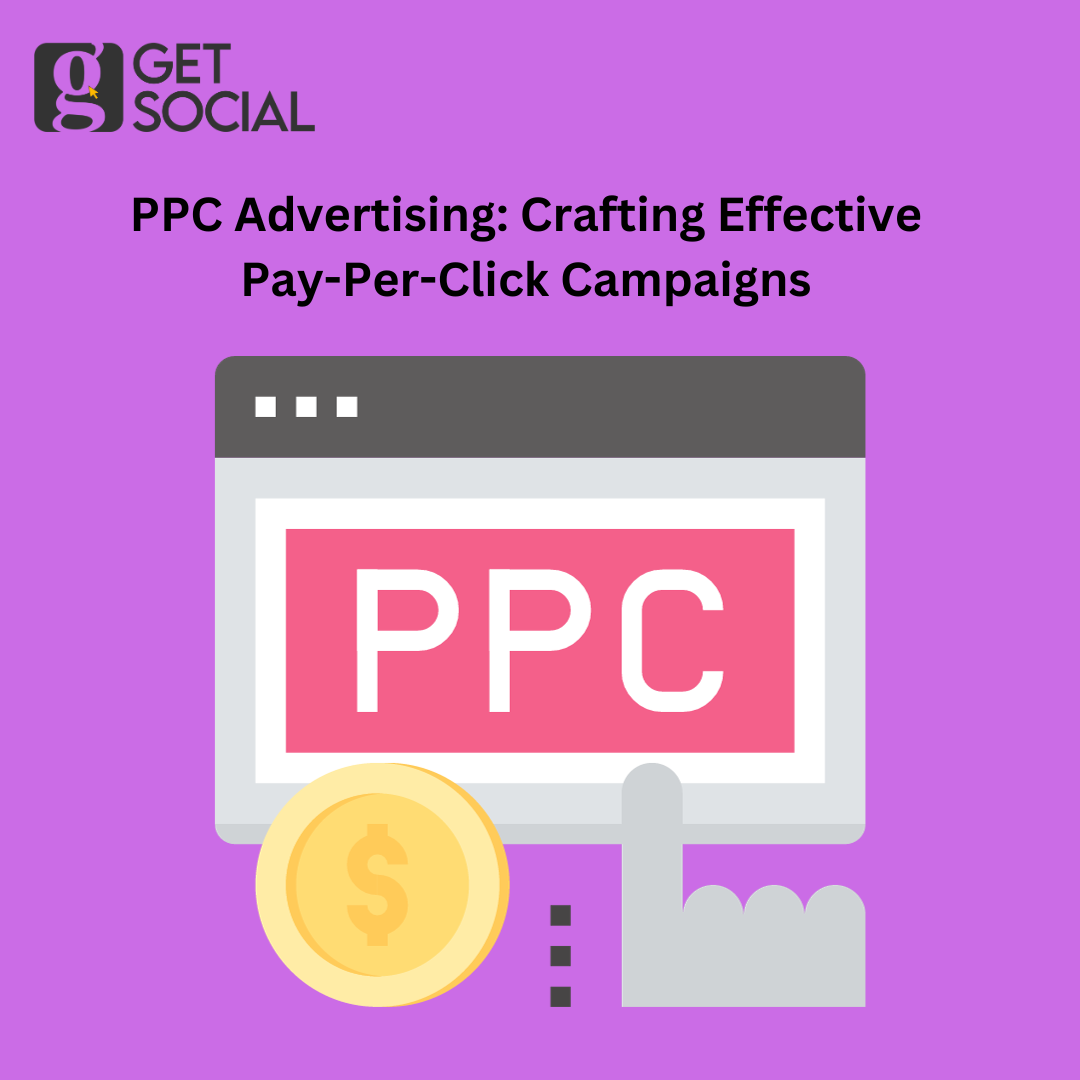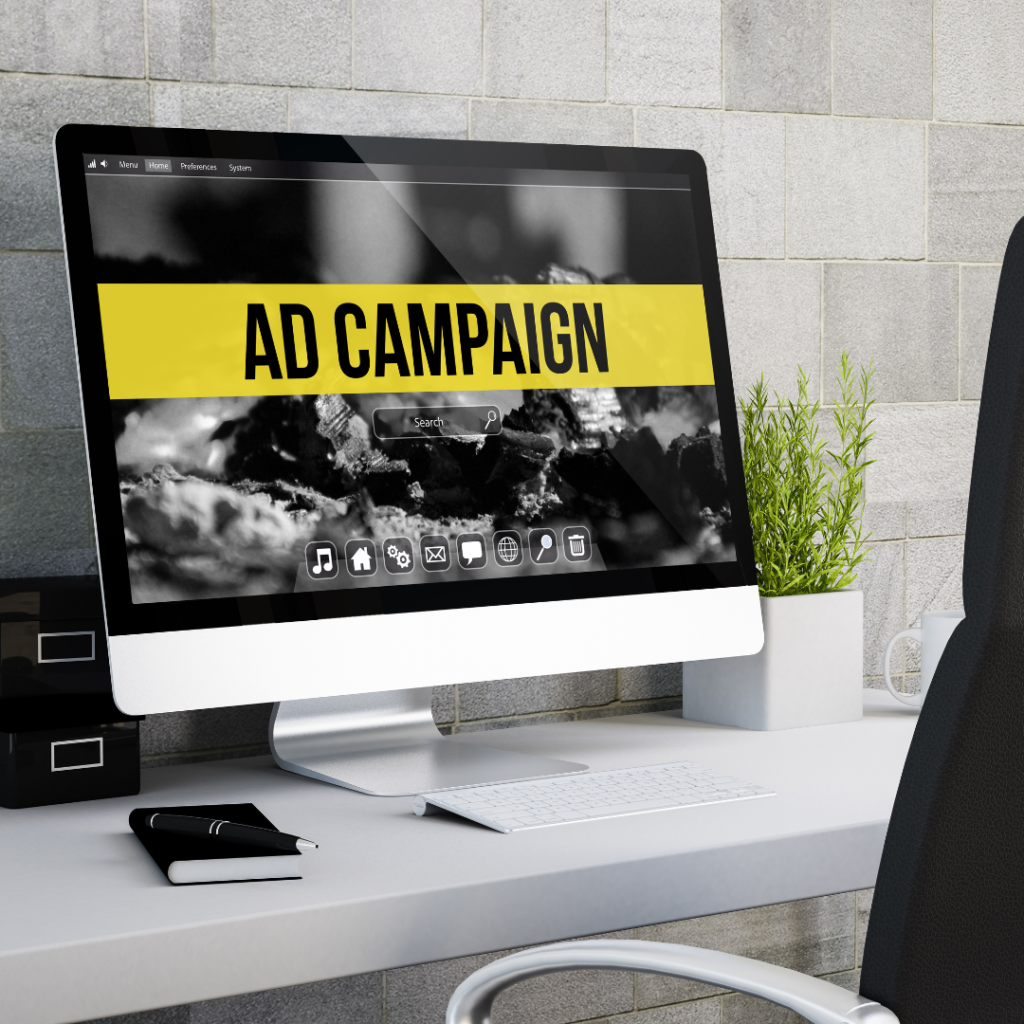Pay-Per-Click (PPC) advertising is a dynamic and results-oriented digital marketing strategy that has become an integral part of businesses’ online marketing efforts. In this comprehensive guide, we will explore the world of PPC advertising, providing an in-depth understanding of its core principles, strategies, and best practices.
Whether you are new to PPC or an experienced marketer looking to refine your campaigns, this guide will equip you with the knowledge to craft effective PPC campaigns that yield measurable results.
PPC Advertising
At its core, PPC advertising is a digital marketing model where advertisers pay a fee each time their ad is clicked. Unlike organic methods such as Search Engine Optimization (SEO), PPC offers a way to purchase website visits directly. To navigate the world of PPC effectively, understanding its foundational concepts is crucial.
PPC operates through an ad auction system, where advertisers bid on specific keywords. These keywords are the words and phrases users input into search engines when seeking information, products, or services.
The ad auction is driven by algorithms that consider factors like bid amount and ad quality to determine ad placement on Search Engine Results Pages (SERPs).
Quality Score is another pivotal element in PPC. Search engines assign Quality Scores to ads based on their relevance and overall quality. A higher Quality Score results in better ad placement and reduced Costs Per Click (CPC). The interplay of these components shapes the success of your PPC campaigns.
Initiating PPC Campaigns
Before you embark on creating PPC campaigns, it’s essential to establish clear objectives and identify your target audience. Whether your aim is to boost website traffic, generate leads, or increase sales, your campaign’s structure and settings should align with these goals. Here are key steps in setting up PPC campaigns:
Choosing the appropriate platform is the initial decision. Options range from Google Ads and Bing Ads to social media platforms like Facebook Ads. Deciding on the right platform depends on your target audience and the nature of your products or services.
Comprehensive keyword research is fundamental to PPC success. Identifying relevant keywords specific to your business is crucial. Utilize tools such as Google’s Keyword Planner or third-party solutions to unearth high-performing keywords relevant to your niche.
Campaign structure plays a pivotal role. Organize your campaigns into logical ad groups, which group together keywords and ad creatives that share a common theme. A well-structured campaign simplifies management and optimization efforts.
Crafting an ad copy that captivates your audience is essential. The ad copy should seamlessly integrate your chosen keywords while resonating with your target audience. Leverage ad extensions, such as site links, callouts, and structured snippets, to enhance the visibility and relevance of your ads.
Constructing Impactful Ad Campaigns
The creation of impactful pay per click advertising campaigns hinges on meticulous attention to detail and a relentless focus on optimizing your advertising budget. Key considerations include:
Ad Copy takes center stage. Compose persuasive ad copy that seamlessly incorporates your chosen keywords and includes a compelling call-to-action (CTA). The ad copy should be clear, concise, and enticing, encouraging users to click.
Landing Page Optimization is vital. Ensure that your landing pages are tailored to the specific ad group or campaign they correspond to. The landing page should provide a seamless and relevant user experience, aligning with the user’s intent.
Ad Scheduling allows you to display your ads at optimal times. Analyze your target audience’s behavior to identify peak hours or days for advertising. Adjusting your ad schedule can help maximize conversions while minimizing ad spend during off-peak times.
Keyword Match Types impact the precision of your ads. Employ broad match, phrase match, or exact match types strategically to control the reach and relevance of your keywords. Experiment with different match types to find the most effective combination.
Negative Keywords are equally important. Identify irrelevant or low-converting keywords and add them to your negative keyword list. This prevents your ads from displaying for irrelevant search queries, conserving your budget for more relevant traffic.
Monitoring and Optimization
The true power of paid search advertising lies in its flexibility and adaptability. Continuous monitoring and optimization are the keys to unlocking its full potential. Here’s how to ensure your PPC campaigns remain effective:
Conversion Tracking is essential for measuring campaign success. Implement conversion tracking tools to monitor actions such as form submissions, purchases, or sign-ups. Analyze conversion data to identify high-converting keywords and campaigns.
A/B Testing is a powerful optimization technique. Create multiple ad variations within each ad group and test them to determine which performs best. Experiment with different ad headlines, descriptions, and CTAs to refine your ad copy.
Bid Management is an ongoing process. Adjust your keyword bids based on performance data. Increase bids for keywords generating conversions at a profitable cost and lower bids for underperforming keywords.
Ad Extensions provide additional opportunities for visibility. Experiment with different ad extensions, such as call extensions, location extensions, or price extensions, to make your ads more informative and compelling.
Competitor Analysis allows you to stay ahead of the curve. Keep an eye on your competitors’ PPC strategies. Analyze their ad copy, keywords, and landing pages to identify opportunities for differentiation and improvement and if you are looking for the best google ads agency in pune get social is your stop.
Leveraging Advanced PPC Strategies
To achieve a competitive edge in PPC advertising, consider incorporating advanced strategies:
Remarketing enables you to reconnect with past website visitors. Target users who have previously interacted with your site, encouraging them to return and complete desired actions.
Display Advertising extends your reach beyond search engines. Utilize visual banner ads on websites within the Google Display Network or other advertising networks to target users based on their interests and behavior.
Dynamic Search Ads (DSAs) automatically generate ad headlines and landing pages based on your website’s content. DSAs are ideal for advertisers with large and frequently updated inventories.
Ad Customizers provide real-time ad personalization. Use ad customizers to dynamically insert information like prices, inventory levels, and countdowns into your ad copy.
Aim for Mobile Optimization as mobile users represent a significant portion of online traffic. Ensure that your campaigns are mobile-friendly and utilize mobile-specific ad extensions.
Local PPC is crucial for businesses with physical locations. Implement location extensions and tailor your ad copy to appeal to local audiences.
Ensuring Compliance and Quality Assurance
To maintain the effectiveness and credibility of your PPC campaigns, adhere to best practices for compliance and quality assurance:
Adherence to Policies is essential. Familiarize yourself with the advertising policies of your chosen PPC platform and ensure that your ads comply with all guidelines.
Regular Auditing helps uncover and rectify issues. Conduct routine audits of your campaigns to identify errors, discrepancies, or opportunities for optimization.
How Can Get Social Can Help You In An Effective Ppc Campaign.
Get Social, as a digital marketing agency, can play a crucial role in crafting effective Pay-Per-Click (PPC) campaigns. Here’s how they can help:
1. Keyword Research and Selection:
Get Social can conduct comprehensive keyword research to identify the most relevant and high-converting keywords for your PPC campaign. They can analyze search volume, competition, and user intent to select the best keywords that align with your goals.
2. Ad Copy Creation:
Crafting compelling ad copy is essential for PPC success. Get Social can write persuasive and relevant ad copy that not only attracts clicks but also aligns with your brand messaging and goals.
3. Landing Page Optimization:
A well-optimized landing page is crucial for converting PPC traffic into leads or customers. Get Social can assess your landing pages and recommend or implement changes to improve conversion rates.
4. Budget Management:
Get Social can help you set and manage your PPC budget effectively. They can allocate your budget to maximize ROI by focusing on the most profitable keywords and campaigns.
5. Ad Scheduling and Targeting:
Get Social can fine-tune your PPC campaigns by optimizing ad scheduling and targeting options. They can ensure your ads are displayed at the right times to reach your target audience.
6. A/B Testing:
Continuous improvement is key to PPC success. Get Social can conduct A/B tests on ad copy, landing pages, and other elements to identify what works best and make data-driven optimizations.
7. Quality Score Improvement:
A higher Quality Score leads to lower costs and better ad placements. Get Social can work to improve your Quality Score by optimizing ad relevance, click-through rates, and landing page experiences.
8. Ad Extensions:
Utilizing ad extensions can enhance the visibility and effectiveness of your PPC ads. Get Social can implement ad extensions like site link extensions, callout extensions, and structured snippets to provide more information to users.
Conclusion
partnering with Get Social, a proficient digital marketing agency, can significantly elevate your Pay-Per-Click (PPC) campaigns.
Their expertise in keyword research, ad copy creation, landing page optimization, and budget management ensures that your PPC efforts are not only cost-effective but also strategically aligned with your business objectives and if you are looking for Facebook ads in pune contact Get Social.






Add a Comment